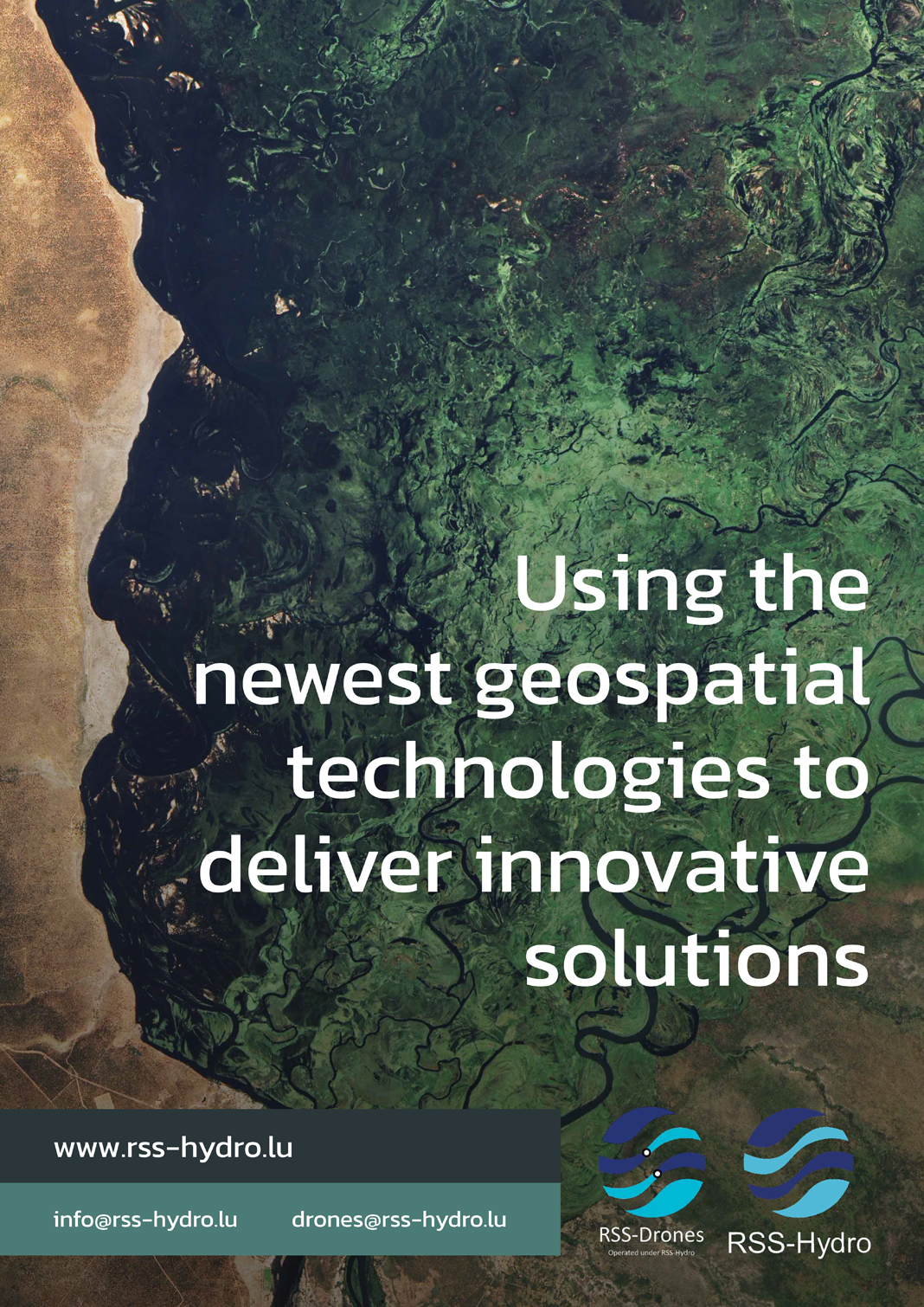The innovative RSS-Hydro showcases its newest geospatial technologies and discusses its mission to build on pioneering new remote sensing technologies.
There is a clear and growing demand from several sectors (public, private, non-governmental, and humanitarian) to better respond and prepare for floods and mitigate their impacts using geospatial technologies.
RSS-Hydro’s latest eBook discusses the vast range of technologies used by the company to deliver cutting-edge research on the most efficient and effective ways of monitoring floods on a global scale. The company’s CEO Dr Guy Schumann discusses:
- The use of drones in monitoring flood risks
- Simulating water risks
- RSS-Hydro’s PhD and postdoctoral training
- Cloud-based data solutions
About RSS-Hydro
RSS-Hydro’s main activities revolve around three business pillars: research, development of science-driven products, and expert scientific consulting. RSS-Hydro’s main business consists of developing science-driven products and services focusing on water, floods, and flood disasters worldwide, primarily based on computer simulations, earth observation, and space technologies. The R&D company’s main expertise include:
- Remote sensing
- Hydrology
- Topography
- Flood modelling
- Machine learning
- Flood disaster assistance
- Extreme value analysis
- Education
RSS-Hydro’s Research and Education Department is a government-accredited research institute that participates in the Frontiers Development Lab as part of a public-private partnership with NASA and ESA.
RSS-Hydro’s overall mission is to establish a globally influential private R&D centre in flood science, with strategic public-private partnerships, including universities and national research institutions, joint ventures as well as build strong collaborations with a number of international organisations.
RSS-Hydro’s team consists of senior scientists, including a recipient of an industrial fellowship award from the Luxembourg National Research Fund (FNR) in collaboration with the University of Luxembourg. The team regularly submits research projects to the European Commission, the European Space Agency, and other national and international programmes. RSS-Hydro’s main revenue stream comes from research and development projects.


